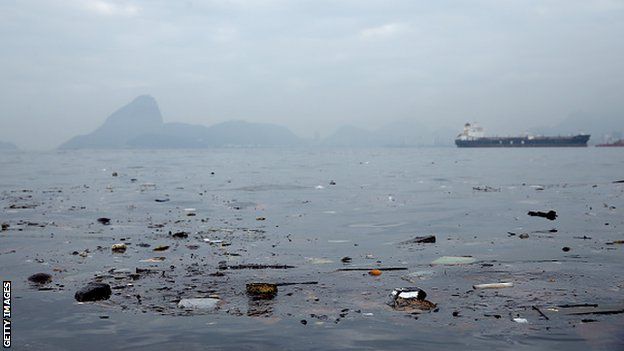Rio 2016: Olympic waters to be tested for viruses
- Published

The pollution at Guanabara Bay, site of sailing events at Rio 2016
World sailing's governing body is to test for viruses in waters to be used at the Rio Olympics in 2016.
According to an Associated Press, external investigation, the sailing venue at Guanabara Bay is badly polluted, as is Rodrigo de Freitas lake, which will host rowing and canoeing.
It is claimed the levels of raw sewage pose a serious health risk to athletes.
The International Sailing Federation's chief executive said the findings have helped "wake us up again".
"I want to make sure everyone who goes out in the water is safe," Peter Sowrey added.
"We're going to find someone who can do the testing for us that can safely cover what we need to know from a virus perspective, as well as the bacteria perspective."
The investigation also showed venues for triathlon and open water swimming off Copacabana Beach had high virus levels that pose a threat to athletes and tourists.
Up to 1,400 athletes will compete in water sports at the Games and, in a statement to AP, the World Health Organisation, external said it has suggested the International Olympic Committee, external start monitoring for viruses at the Rio venues.
What is Rio's Plan B?
When Rio was awarded the Olympics in 2009, it promised cleaning its waters would be an Olympic legacy, but Rio Mayor Eduardo Paes has repeatedly acknowledged this will not be done, calling it a "lost opportunity".
Sowrey said a "backup plan" included sailing all the events outside Guanabara Bay in the open Atlantic. The ISAF has three courses there, and three inside the bay.
He said it would be "heartbreaking" to sail outside the bay and lose the postcard backdrop of Sugarloaf Mountain, which will be a focus of television coverage.
- Published31 July 2015
- Published28 July 2015
- Published1 August 2015